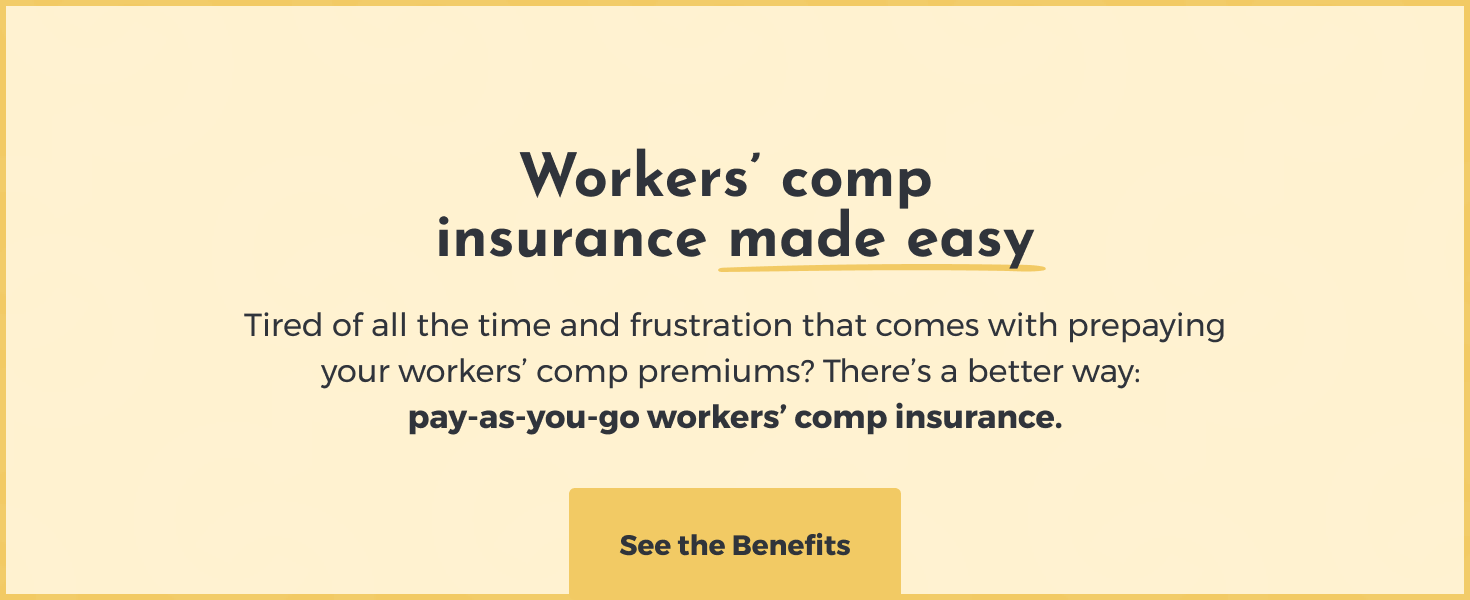Are Nonprofits Exempt From Workers’ Compensation?

When an employee is injured on the job, workers’ compensation insurance serves as a safety blanket, protecting businesses from potential liability. Yet, while workers’ comp is especially important for high-risk industries like construction or roofing, where workers are prone to getting hurt, if you own a nonprofit organization with more administrative staff, workers’ comp may seem like an unnecessary expense. You may even be wondering: are nonprofits exempt from workers’ compensation insurance?
For most businesses, workers’ comp is not only recommended for protection, but required by law. In fact, depending on your specific state, the penalties for not investing in workers’ comp can run as high as $100,000. However, nonprofit organizations differ from for-profit businesses in countless ways - especially when it comes to understanding tax issues. For example, while nonprofits must pay state and property taxes, they aren’t required to pay income taxes like for-profit organizations do. With such differing requirements, it can be hard to navigate what rules nonprofit organizations must follow.
So, are nonprofits exempt from workers’ compensation? It’s a tricky question but after reading this post, you should have a better handle on what’s required for your organization.
Nonprofits and Workers’ Compensation
It’s difficult enough to understand how workers’ compensation insurance is calculated for for-profit businesses. Premiums are complicated, dependent on several factors, including:
- The state(s) in which you operate
- Your organization’s claim history (also referred to as the Mod Rate)
- The job classifications of your workforce based on their risk level
- The total wages paid out to your employees
Nonprofit operations only throw a wrench into these calculations. Not only is the corporate and tax structure radically different between nonprofits and for-profit businesses, but the make-up of each workforce differs as well. The best way to find out if you need a workers’ comp plan – and what it will cost you if you do – is to work with a broker who understands your business at a local level. ConnectPay has connected hundreds of small business clients to our network of insurance brokers, so feel free to reach out if you’re looking for support.
With that being said, to better understand whether your nonprofit is required to pay workers’ compensation insurance premiums, there are three main components to consider: your state, your workforce, and your potential for penalties.
State-Specific Requirements
Your nonprofit organization may be exempt from workers’ comp insurance based on the state you operate out of. States where nonprofits may be exempt from workers’ comp plans include Alaska, Arkansas, Louisiana, Montana, and New York. However, exemptions depend on a variety of factors, including the types of workers you employ and the amount of wages they earn. It’s important to read up on the workers’ comp exemption laws in your specific state before making any decisions for your organization.
Worker-Specific Requirements
The structure of your organization also plays a factor into whether your nonprofit needs a workers’ comp plan. Some workers – like independent contractors or part-time employees - can be exempt from workers’ comp while other full-time employees will need to be fully covered. Additionally, if your organization has a volunteer program, these workers are typically not covered by a workers’ comp plan because they are not being paid. Likewise, if you have a sole proprietorship and no employees are working for you, your organization is likely to be exempt from workers’ comp as well. At the end of the day though, these exemptions still largely depend on your specific state and the risks involved with your work.
Related Read: Do You Need Workers’ Compensation Insurance For Part-Time Employees?
Penalties and Liability
If you fail to cover your workers correctly, your organization could be riddled with liability. Like exemptions, penalties for noncompliance vary state by state. For example, states like California have very steep monetary penalties whereas other states like Pennsylvania offer a lower fee, but up to seven years of prison time.
And penalties and fines shouldn’t be your only concern either. If one of your employees is injured on the job and you don’t have workers’ comp coverage, you could have a potential lawsuit on your hands. To keep you, your workers and your organization protected, it’s vital to understand how workers’ comp laws affect your specific business situation.
Are Nonprofits Exempt From Workers’ Compensation? It Depends
The short answer to the question Are nonprofits exempt from workers’ compensation? is… sometimes. It all depends on the laws in your state and how your organization is run. A better question to ask is: Is my nonprofit exempt from workers’ compensation? Using the information outlined in this post, you should have the tools you need to make that determination.
However, if you’re still not feeling confident in your ability to determine and calculate your workers’ compensation requirements in-house, you may want to consider partnering with a broker who can. Not only will they be able to walk you through your state laws, but they can show you how to save money on workers’ compensation insurance if you need to invest in a plan.
If you’d like to learn more about workers’ comp plans, just let our team know. While we don’t sell workers’ comp ourselves, we’d be happy to put you in touch with a trusted broker who can help!







